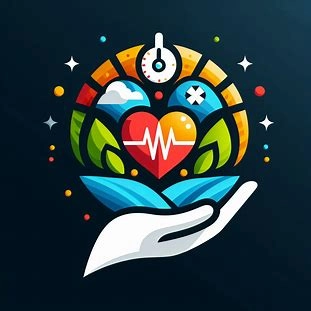Select a category

 Each year, more than 4.5 million dog bites occur in the United States. Despite what you might assume, most of these incidents don't happen when an unfamiliar dog attacks someone in a park or another outdoor location. Instead, most dog bites are inflicted by a pet dog in a home.
Each year, more than 4.5 million dog bites occur in the United States. Despite what you might assume, most of these incidents don't happen when an unfamiliar dog attacks someone in a park or another outdoor location. Instead, most dog bites are inflicted by a pet dog in a home.
Here's advice for avoiding these upsetting and potentially serious injuries — and the steps you should take if you sustain a dog bite.
Why do dog bites happen?
Some dog bites happen by accident when people wrestle or play tug-of-war with their dog. But most of the time, dogs bite people as a reaction to feeling stressed, threatened, scared, or startled, according to the American Veterinary Medical Association (AVMA). More than half of dog bites occur in children, and they're far more likely to be seriously injured than adults.
"People don't always heed the behavioral signals that a dog is uncomfortable," says Dr. Christopher Baugh, associate professor of emergency medicine at Harvard Medical School. For example, some dogs are highly territorial and will bark, growl, snap, and lunge if outsiders enter their space — whether that's an apartment, yard, or crate. Or dogs may exhibit resource guarding, which shows up as anxious, aggressive behavior around food, toys, or beds.
"These situations can be high-risk, and children in particular have less awareness of that risk," says Dr. Baugh, who has children and two mixed-breed rescue dogs, Harley and Roxi.
What can you do to prevent dog bites?
Any dog — even a sweet, cuddly dog — can bite if provoked, according to the AVMA. Never leave young children alone with a dog without adult supervision. And teach children to never disturb a dog while it's eating, sleeping, or caring for puppies.
In a study of 321 facial dog bites treated at Harvard-affiliated Massachusetts General Hospital over a 20-year period, 88% of the bites were from known dogs. Most were in adults and occurred after playing with the dog, feeding the dog, and placing their face close to the dog. However, the hand (usually a person's dominant hand) is probably the most common location for a dog bite in an adult, says Dr. Baugh.
Other tips from the CDC to prevent dog bites include the following:
What if an unfamiliar dog approaches you? Remain calm and still, avoiding eye contact with the dog. Stand with the side of your body facing the dog and say "no" or "go home" in firm, deep voice. Wait for the dog to retreat or move yourself slowly away.
What should you do if you're bitten by a dog?
Clean the wound with mild soap and running water, then cover it with a clean bandage or cloth. Some online resources recommend applying an antibiotic ointment or cream. But these products are recommended only for people with clear evidence of an infection, such as redness, pus, pain, swelling, or warmth, according to the American Academy of Dermatology.
If the injury is serious — with a bite on the face, heavy bleeding, or a possible broken bone — go to the emergency room. That's also a good idea if you're bitten by an unknown or stray dog, in the rare event that you might need medicines to prevent rabies (rabies post-exposure prophylaxis).
"Often, people are shocked after being bit and will understandably focus all their attention on their wound," says Dr. Baugh. The dog's owner may check in to see if you're okay, but then walk away. But you should get the person's contact information and make sure the dog is vaccinated against rabies, he says.
Keep in mind that:
What if a dog bite is less serious?
Let's say you have a less serious bite from a family dog known to have a current rabies vaccine. Bites that don't require stitches can be cleaned with mild soap and running water, then evaluated by your regular health care provider. They may tell you to simply monitor the wound for signs of infection.
"Doctors are trying to be more thoughtful about prescribing antibiotics and limit their use in low-risk situations, because overuse contributes to antibiotic resistance and exposes people to potential side effects without any benefit," says Dr. Baugh.
Source: Harvard Health Publishing

Source: Harvard Health Publishing


Uche Jombo’s "Onye Egwu" Movie Sparks Nationwide Reactions Amidst Protests. Showing Now On Amazon Prime Video "Onye Egwu "


The media uproar that swirled a few weeks ago around leprosy in the US drew attention away from ongoing heat and extreme weather that pose far more danger to most of us. But does a single case of a man diagnosed with leprosy in central Florida suggest that anyone anywhere in the US could get leprosy? Might this become the next pandemic? Just how worried should we be?
Read on to set the record straight about leprosy. (Spoiler alert: there will be mention of armadillos.)
Why did leprosy make the news?
In August, one case of leprosy in central Florida was described in the journal Emerging Infectious Diseases. This report was widely covered by the news media, with headlines like "CDC confirms leprosy outbreak in Florida: What to know if you're traveling to the state" (WKYC) and "Central Florida is a hot spot for leprosy, report says" (CNN).
One reason for concern raised by experts was the fact that the man diagnosed had no identifiable risk factors for the disease. That is, he had not traveled to a place where leprosy is common and had no contact with anyone who had the disease. Past research has suggested the organism that causes leprosy can survive in soil. And that raised the possibility that this man's work as a landscaper put him at risk for leprosy.
What is leprosy?
Leprosy, or Hansen's disease, is a chronic infection caused by Mycobacterium leprae bacteria. (That's a close relative of the organism that causes tuberculosis.) This ancient disease, which affects skin, nerves, and linings of the eyes and upper respiratory tract, is described in some of the earliest human writings (including the Old Testament), and genetically identified in archeological remains dating back to 2000 BC.
Common symptoms of leprosy include:
Left untreated, this may lead to skin deformities. Surgical amputations may be necessary to control skin ulcers that fail to heal or are chronically infected.
How does leprosy spread?
Usually, the infection spreads from person to person through respiratory droplets shared during prolonged, close contact. Coughing or sneezing, for example, can release respiratory droplets, which can be breathed in by people who are nearby.
Some cases of leprosy have been linked to animal contact, such as the nine-banded armadillo and Eurasian red squirrels.
However, in about a third of cases, no clear risk factor can be identified.
How common is leprosy?
For most people in the US, leprosy is not a major health concern. In recent years, about 180 cases of leprosy have been diagnosed annually. Though this represents an uptick from fewer than 100 cases in 1999 and 2000, the disease remains rare in the US.
Worldwide, it's a different story: according to the World Health Organization, more than 200,000 cases in 120 countries are diagnosed each year. The highest numbers of cases are in Brazil, India, and Indonesia.
Has leprosy become common in Florida?
No. There have been about 20 cases per year in Florida since 2015. As is true nationally, this represents an increase from prior years.
But some experts speculate that leprosy may be endemic now in central Florida, where about 80% of the state's cases are diagnosed. Endemic means there are enough sources of infection (such as infected people or animals) in a particular area to allow the disease to spread, even if no new cases are brought in from elsewhere.
Since some people with infection have no risk factors for the disease, it's possible leprosy has become endemic there. But that remains unproven.
Myth versus truth: Common misconceptions about leprosy
Misunderstanding fuels stigma and discrimination against people who have leprosy. Maybe you've heard some of these falsehoods.
The myth: Leprosy is extremely easy to spread. In the past, this myth led to isolation of people with leprosy in "leper colonies" that quarantined entire communities of people with the infection.
The facts: About 95% of people are naturally immune to leprosy. And, because spread of infection between people requires close and prolonged contact, it's not nearly as contagious as many other infections. So it's not readily spread by being in a room with an infected person, or by touch. And, within one week of treatment (see below), a person with leprosy is no longer contagious. As a result, isolation from others is unnecessary.
The myth: Leprosy causes parts of the body, such as fingers or ears or the nose, to fall off.
The facts: Body parts do not fall off. Sometimes surgical amputations are needed to treat nonhealing wounds and infections, two complications of longstanding nerve damage related to leprosy.
The myth: There are no treatments for leprosy.
The facts: There are effective antibiotics for leprosy. To cure the infection, people may need to take a combination of different antibiotics for a year or more.
The bottom line
Some of the news coverage on the case of leprosy in Florida seems more dire than necessary. In fact, the risk of developing leprosy in central Florida, or elsewhere in the US, remains exceedingly low.
And it's highly unlikely leprosy will become the next pandemic. However, some experts predict that vulnerable populations in the US, such as homeless people living in close contact with poor hygiene and inadequate medical care, could experience outbreaks of leprosy in the future.
While risk seems low now, it's a good idea to keep leprosy in mind if you have unexplained rashes or nerve damage, especially if you live in a place where the disease is common or have had contact with an infected person. Otherwise, there's little reason to have leprosy on your short list of health concerns.
Follow me on Twitter @RobShmerling
Source: Harvard Health Publishing


Do you ever read the notes written by your doctor or health practitioner during a medical visit? If not, you might want to check them out. Usually, these medical notes are full of helpful insights about your health and reminders of recommendations discussed. And there's medicalese, of course: hard-to-pronounce illnesses, medications, and technical terms.
But you may be surprised to see incorrect information or unexpected language, tone, or even innuendo. Was your past medical history really that "unremarkable"? Did you actually "deny" drinking alcohol? Did the note describe you as "unreliable"?
Here's how to decipher unfamiliar lingo, understand some surprising descriptions, and flag any errors you find.
What's in a medical note?
A standard medical note has several sections. These include
Notes tend to be more complete for a new patient or annual exam. Follow-up notes may not cover all of these points.
What's potentially confusing about medical notes?
Most medical notes aren't written using plain language because they aren't intended primarily for a nonmedical audience. So it's common to run across:
If you're having trouble deciphering a note or understanding your health issues, tests, and recommendations, check in with your doctor's office for clarifications. The more you understand about your health and your options for care, the better.
What if a medical note is incorrect?
Minor errors in medical notes are not rare: maybe you had your tonsils removed 30 years ago, not 10 years ago. But there can be more important errors: stating that arthritis in your left knee is severe when it's actually the right knee that's severe could lead to having x-rays (or even surgery!) on the wrong side. And not properly recording a family history of cancer or heart disease could mean missing out on timely screening tests or preventive treatments.
In an era of ever-increasing time pressure, use of voice recognition software, electronic record templates, drop-down menus, and ability to copy and paste text, it's easier than ever for health care providers to make (and perpetuate) errors in the medical record.
If you do see an important error that could affect your health, ask your provider to amend it.
What if the language in a medical note seems offensive?
Numerous studies have highlighted the problem of stigmatizing language in medical notes that can leave people feeling judged or offended. Negative attitudes can affect the quality of our health care and willingness to seek care, and can also widen health disparities. One study linked stigmatizing language to higher rates of medical errors. Of note, this study found higher rates of stigmatizing language and medical error among black patients.
Examples include:
Why might this happen, anyway?
How does such language make its way into medical notes? (To be clear, these possible explanations are not justifications.)
If the language in a note is confusing or bothersome, ask about it. The Open Notes movement and federal legislation have given most of us much better access to our medical records. This has worthy goals — greater transparency and better communication with people about their medical care — and unintended consequences.
Is changing language in notes that health practitioners once shared mainly with each other a positive consequence? Mostly. Yet some doctors worry that notes will become less specific, accurate, or useful since they may leave out information that might upset a patient.
The bottom line
I encourage you to read your health providers' notes about your care. If there is a substantial error or something you find confusing or objectionable, ask about it. By the way, a signed medical note cannot usually be revised. However, your doctor can make clarifications or correct mistakes in an addendum at the end of the note.
As more and more patients read their medical notes, it's likely that health providers will be more conscientious about the language they use. So, wide access to medical notes may improve not only people's understanding of their health, but also the quality of notes over time.
It's worth remembering that the medical note is not the most important thing that happens during a visit to your doctor. A great note isn't the same as great care, and vice versa. Still, your medical notes can be a valuable source of health information that differs from all others, including trusted health sites and social media: they're written by your doctor and they're all about you.
Source: Harvard Health Publishing


Breaking News: Nationwide Protests Intensify as Prophet Christian Shola Calls for Compassionate Leadership from President Tinubu

 Healthwatch
Healthwatch Gistlegit
Gistlegit